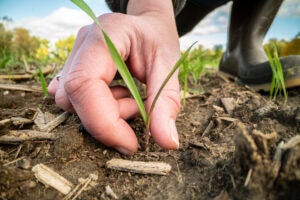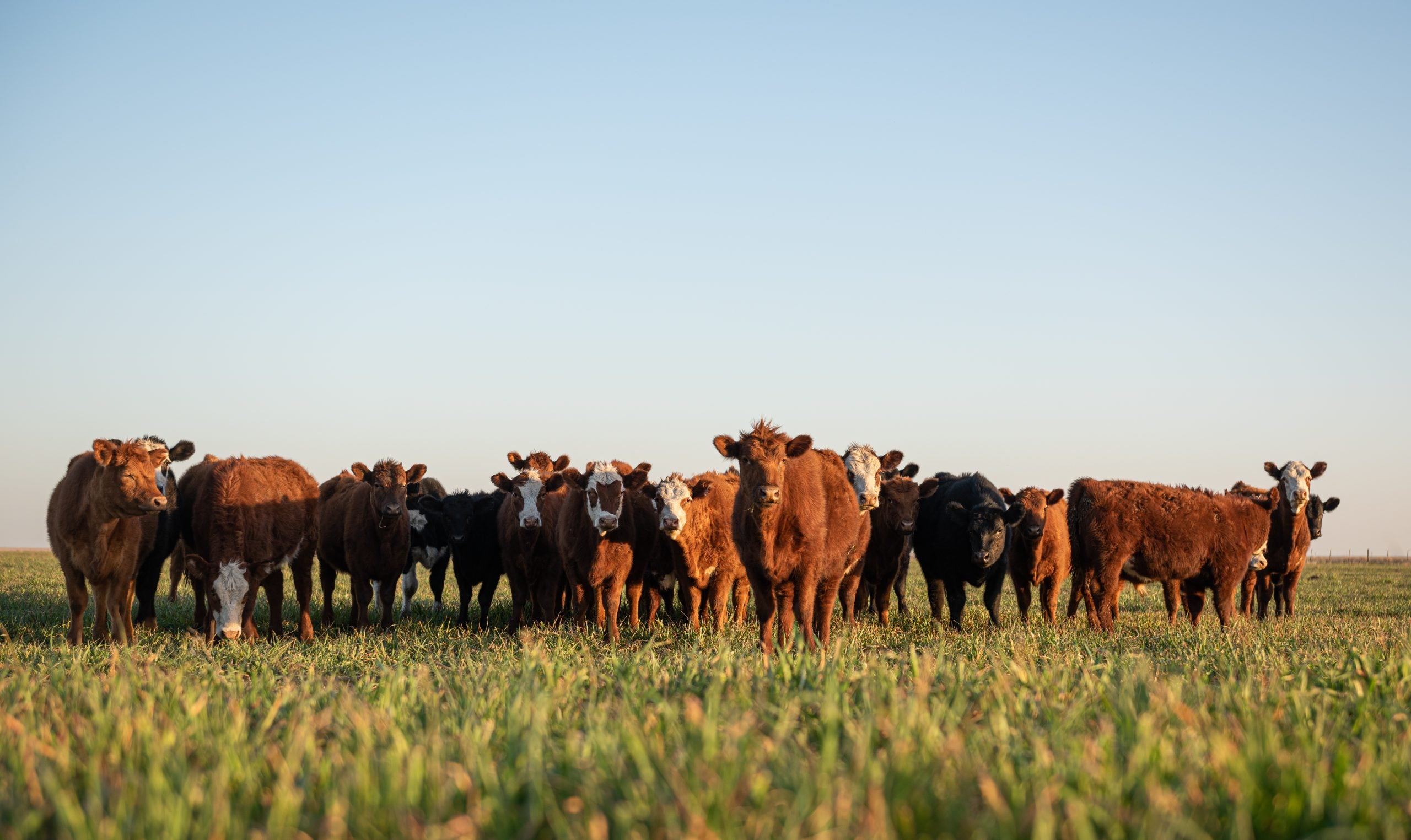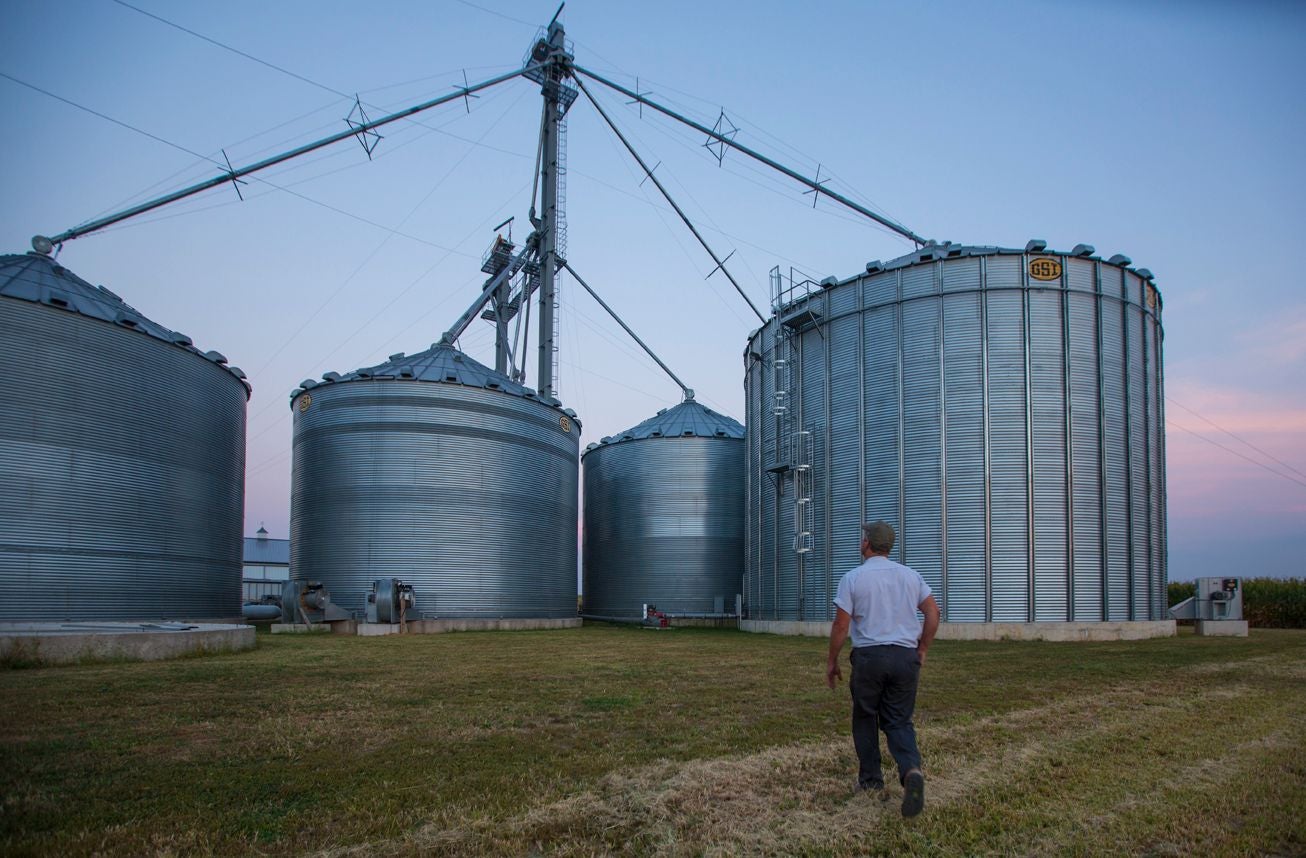
Trends to scale collective impact at the 2023 Sustainable Agriculture Summit and beyond
Establishing a cover crop during the cool season.In early December, the EDF climate-smart agriculture team will join hundreds of farmers, food and agriculture companies, university experts and other conservation organizations at the 2023 Sustainable Agriculture Summit, “Scaling Collective Impact: Collaborating to Accelerate Agricultural Sustainability.” This conference is one of the largest annual gatherings of people working to improve sustainability in U.S. agriculture, and the discussions held in the conference sessions and hallways reflect the major trends, opportunities and challenges facing those who share this goal.Here are some expected “hot topic” discussions at the conference and throughout the agricultural sustainability movement as we approach 2024.
Climate change will continue to dominate the discussion, but many are bringing a more holistic view of the opportunities.
Over the past several years, sustainability conversations in agriculture have increasingly focused on climate change due to the urgency of reducing greenhouse gas emissions and the impacts of climate change that farmers are already experiencing. This emphasis will continue, as demonstrated by the recent release of the U.S. government’s preeminent report on climate change. The report highlights that increased instabilities in U.S. and global food production and distribution systems are projected to make food less available and more expensive as the climate changes.
While climate change will continue to be a major conversational theme, many agricultural groups and companies are expanding their view to look at the interaction of climate with other critical topics for the future of agriculture, such as ecosystem health and equity. This is partly driven by a push for major companies to assess and disclose nature-related dependencies and risks. There is also an increasing focus on supporting people in agriculture: there are sessions focused on centering producer voices, farmers of color and the transition of farmer ownership. Ultimately, there needs to be progress on all these priorities simultaneously to build a holistic, sustainable agricultural system.
Unprecedented amounts of public and private investment in climate-smart agriculture are now reaching farmers.
Last year, the buzz in the Summit hallways was all about the USDA Partnership for Climate-Smart Commodities Program, as funding announcements were made just a few months before the event. This year, the Climate-Smart Commodities Program will remain a hot topic, but the discussion will focus on implementation. Nearly all the contracts for the $3 billion program are complete, and some projects have begun their work with farmers — for example, the Soil and Water Outcomes Fund has enrolled 200 farmers and counting. The USDA is also rolling out increased funding from the Inflation Reduction Act through its farm bill conservation programs, and there have been significant private sector funding commitments to climate-smart agriculture in the past year as well.
The Summit attendees will have plenty to discuss about how to make the most of this influx of funding and ensure that it translates to lasting change in the agricultural sector. Hopefully, there will be conversations about how to reach a broader swath of U.S. farmers with conservation funding, how to avoid conflict between different funding sources and how to balance thecompeting priorities of rigorous quantification of environmental impacts while minimizing the cost and burden of data collection.
Agricultural finance will take the stage at the Summit and expand its role in the broader agricultural sustainability movement.
Agricultural lenders and investors will play an essential role in financing the transition to sustainable agriculture and will be featured on the Summit’s main stage for the first time this year. EDF will be moderating a main-stage panel on this topic in which we will dig into financial innovations to advance sustainability in U.S. agriculture.
The session will highlight some of the successes of the last year, such as EDF’s collaboration with Farmers Business Network on the Regenerative Agriculture Financing program and the evolution of sustainability efforts by major agricultural finance institutions, such as CoBank. Several major U.S. agricultural finance institutions have hired chief sustainability officers and released their first organizational sustainability reports in the past few years. With that added capacity, they are poised to work with others across the agricultural sector on sustainability efforts.
The EDF climate-smart agriculture team sees the Summit as an annual opportunity to reconnect with others working to advance agricultural sustainability and re-energize our efforts. For those unable to attend, we hope these thoughts provide some insight into the trends we can all expect as we move forward into 2024 to scale our impact – collectively.












